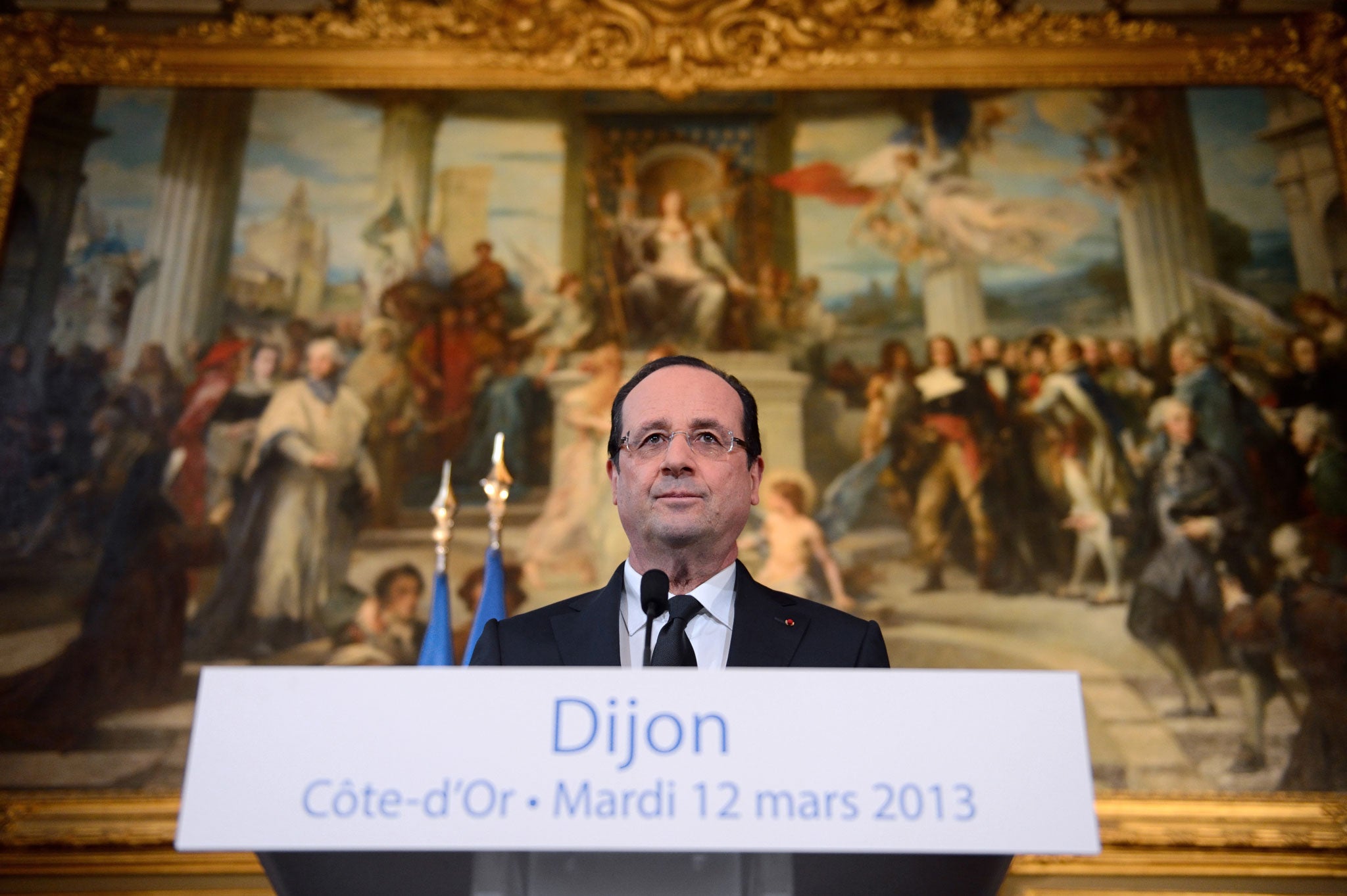Hollande, Cameron and how not to be a leader
The French President appears too relaxed, while our PM has the opposite problem


David Cameron, the Prime Minister, plays his hand his way. But across the Channel, Francois Hollande, the French President, deals out his cards in quite a different manner. The results, however, are equally disappointing, whether you consider the countries’ economic performance or the political standing of the two leaders. It is not so much that there is no alternative, but that there are many alternatives and few of them seem to work.
Both leaders told the electorate that there would be two years of hard grind and then years three to five would bring better times. However, the French budget deficit keeps rising, which has brought an unwelcome rebuke from Germany. On Tuesday, the President of the German central bank said that reform in France appeared “to have floundered”. France’s inability to meet the rules of the eurozone would be a “bad signal for the whole currency union”.
At the same time, opinion polls show that the proportion of voters approving Hollande has almost halved, from nearly 60 per cent when he was elected 10 months ago to 35 per cent now. That is slightly worse than Nicolas Sarkozy’s experience and far inferior to the performance of Hollande’s Socialist predecessor, François Mitterrand.
In a speech this week in Dijon, the French President rebuked his citizens for their pessimism, what he calls their torpeur. “A certain number of our citizens think that everything is too difficult, that France has no future,” he said. This is a persistent characteristic. Opinion poll after opinion poll has measured it. It seems to be a peculiarly French problem. Is it explained, even 70 years later, by France’s defeat in the Second World War, still a source of shame and whose memory is kept alive by a steady outpouring of books on the subject?
Whatever the reason, it is a fact. As a French commentator wrote the other day: “How can an optimist manage a pessimistic nation?” Hollande is, by all accounts, naturally upbeat. And taking these two characteristics together explains a lot.
At the Council of Ministers’ meeting last week, Hollande instructed his colleagues not to make people worried. “Do not strengthen their pessimism… carefully consider what you say in public.” Then, in Dijon, he asked for time. ‘‘One should judge a policy at the end, when it has been complete. I ask to be judged in this way.” In many respects, this is a very reasonable request. According to press reports, the President was met with “neither anger nor enthusiasm”.
An adjective widely used to describe the President’s state of mind is “serene”. And when a friend was quoted recently as saying that he was “just a little bit more preoccupied than usual”, it was the “little bit more” that people noticed. Only a little bit more!
Much of this is admirable and a refreshing contrast to Mr Cameron, with his rapid-fire announcements of badly thought out initiatives to stimulate economic growth and the Chancellor of the Exchequer’s “omnishambles”. So take your pick: frenetic action on one side of the English Channel, absence of action on the other. But when you look at the criticisms of Hollande, you wonder whether there is any right way.
A French senator said the other day that the new president should have spelt out at the beginning of his period in office just how bad things were. He ought to have made a speech such as Churchill gave during the war. This is an interesting observation in two ways. On this side of the Channel, we have had a surfeit of the Prime Minister and his Chancellor repeating every day what a mess they found when they entered office. We’ve been spared no details. The truth is that government ministers do not need to tell us how bad things are. We know that already from daily experience. And then in the senator’s remarks there was the reference to Churchill, in other words to that Second World War experience that I believe nags away at French minds.
Politics has no patience. And in an era of 24/7 news reporting, it fills with disobliging material the space left by an absence of words or action. So, for Hollande, the key question has become: Is he up to it? Has he got what it takes? Has he properly measured the crisis? People say that he always seems to react very late to every piece of bad news.
“It’s hard. People don’t see the end of tunnel,” say ministers who venture out beyond Paris. National Assembly members implore the President to give a sense of direction. As the Socialist mayor of Lyon put it: “It is essential to speak in clear language and fix a direction.”
Political leaders cannot choose the epithets we bestow on them as they struggle with the immense problems of government. Cameron and George Osborne are the posh boys who don’t know the price of milk. As for the French President, a satirical magazine recently likened him to the comfortably placed grandfather who lives a calm life without worries or dangers. Also very unfair, but politics is always unfair. On both sides of the Channel.
Join our commenting forum
Join thought-provoking conversations, follow other Independent readers and see their replies
Comments
Bookmark popover
Removed from bookmarks